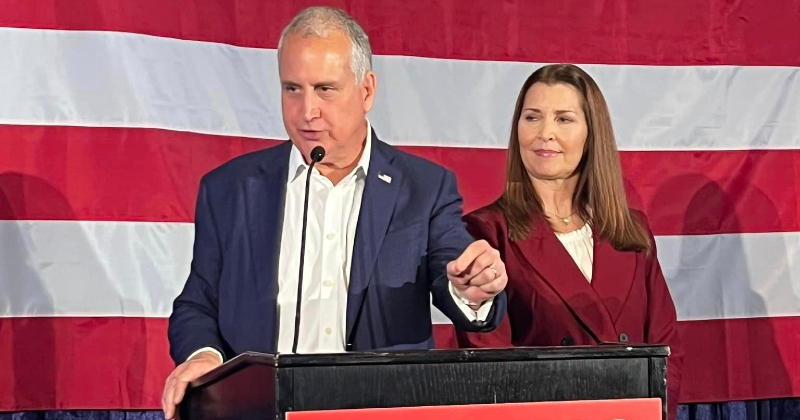U.S. Rep. Mario Diaz-Balart, R-Fla., is backing a resolution from U.S. Rep. Albio Sires, D-NJ, “opposing any inclusion of apparel, textile, and footwear products in the Generalized System of Preferences (GSP).”
Sires brought out the resolution last week, insisting it will help supply chains in the Western Hemisphere and Sub-Saharan Africa and help secure them against China.
“This resolution marks an important step toward strengthening our supply chains in the Western Hemisphere and confronting a rising China,” said Sires. “This legislation makes clear that there is bipartisan opposition to including textile, apparel, and footwear products in the Generalized System of Preferences, as this would be a big win for China and would send jobs out of the United States, Latin America, and Sub-Saharan Africa. I thank my colleagues Representatives Diaz-Balart, Espaillat, and Bass for working together to advance the interests of the United States and those of our allies in preserving the Generalized System of Preferences.”
“This resolution highlights an important way that the United States can encourage diversified supply chains, and promote jobs in the U.S., Latin America, and Africa,” said Diaz-Balart on Tuesday. “As the pandemic has made crystal clear, we must redouble efforts to ensure that key industries are not monopolized and manipulated by Communist China. I commend Congressman Albio Sires for his initiative in taking a stand against expanding the GSP in a way that would harm our economy, global stability, and America’s national security.”
U.S. Rep. Adriano Espaillat, D-NY, and U.S. Rep. Karen Bass, D-Calif., are also backing the resolution.
“This legislation underscores the importance of preserving U.S. manufacturing and rejects efforts to expand the Generalized System of Preferences to include footwear, apparel, and textiles in the free trade program, which would directly threaten the more than two million jobs throughout those sectors in Latin America and hundreds of thousands more here in the U.S.,” said Espaillat. “It is imperative that we renew the GSP cleanly so that the thousands of American businesses who rely on its carefully crafted preferences receive some clarity on the economic conditions over the coming years. I am thankful for the bipartisan leadership and resolve of Chairman Sires, Congressman Diaz-Balart, and Congresswoman Bass in these efforts. Moving forward, we must build off this agreement and others to ensure that economic mobility and fair working conditions and are guaranteed to workers both here and abroad.”
“This bipartisan resolution works toward safeguarding the Africa Growth and Opportunity Act (AGOA) which enhances economic ties between the United States and Sub-Saharan Africa,” said Bass. “If the Generalized System of Preferences program were expanded to include garments, textiles and footwear, it would have a devastating impact on countries across Sub-Saharan Africa. The United States has a strong interest in supporting trade, investment, and job creation across Africa. We cannot afford to jeopardize the progress we’ve made because of AGOA.”
The resolution was sent to the U.S. House Ways and Means and the Foreign Affairs Committees.
Reach Kevin Derby at kevin.derby@floridadaily.com.















